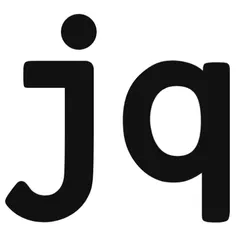jq integration
Deprecated
Pricing
Pay per usage
Go to Store
jq integration
Deprecated
This Actor allows to manipulate datasets JSON data using jq manipulation tool.
0.0 (0)
Pricing
Pay per usage
0
Total users
2
Monthly users
1
Last modified
6 months ago
.actor/Dockerfile
# Specify the base Docker image. You can read more about# the available images at https://docs.apify.com/sdk/js/docs/guides/docker-images# You can also use any other image from Docker Hub.FROM apify/actor-node:20
# Copy just package.json and package-lock.json# to speed up the build using Docker layer cache.COPY package*.json ./
# Install NPM packages, skip optional and development dependencies to# keep the image small. Avoid logging too much and print the dependency# tree for debuggingRUN npm --quiet set progress=false \ && npm install --omit=dev --omit=optional \ && echo "Installed NPM packages:" \ && (npm list --omit=dev --all || true) \ && echo "Node.js version:" \ && node --version \ && echo "NPM version:" \ && npm --version \ && rm -r ~/.npm
# Next, copy the remaining files and directories with the source code.# Since we do this after NPM install, quick build will be really fast# for most source file changes.COPY . ./
# Run the image.CMD npm start --silent.actor/actor.json
{ "actorSpecification": 1, "name": "jq-actor", "title": "Transform dataset with jq JSON manipulation tool", "description": "Allows passing jq command which manipulates given dataset and returns new one.", "version": "0.0", "input": "./input_schema.json", "dockerfile": "./Dockerfile"}.actor/input_schema.json
{ "title": "Scrape data from a web page", "description": "This is actor input schema", "type": "object", "schemaVersion": 1, "properties": { "filter": { "title": "jq filter", "type": "string", "description": "jq filter as documented at https://jqlang.github.io/jq/manual/#basic-filters", "default": ".", "editor": "textfield" }, "sort": { "title": "Sort keys", "type": "boolean", "description": "Sort output keys alphabetically", "default": false, "editor": "checkbox" }, "datasetId": { "title": "Dataset ID", "type": "string", "description": "Platform dataset ID when Actor not set up as integration", "editor": "textfield" } }, "required": [ "filter" ]}src/main.js
1import jq from 'node-jq';2import { Actor } from 'apify';3
4// The init() call configures the Actor for its environment. It's recommended to start every Actor with an init().5await Actor.init();6
7// Structure of input is defined in input_schema.json8const { filter, sort, ...actorInput } = await Actor.getInput();9
10
11const datasetId = actorInput.datasetId || actorInput.payload?.resource?.defaultDatasetId;12
13
14const dataset = await Actor.openDataset(datasetId);15
16// Use node-jq to filter and sort the input JSON17const output = await jq.run(filter, dataset, { input: 'json', sort });18
19
20await Actor.pushData(output);21
22// Gracefully exit the Actor process. It's recommended to quit all Actors with an exit().23await Actor.exit();.dockerignore
# configurations.idea
# crawlee and apify storage foldersapify_storagecrawlee_storagestorage
# installed filesnode_modules
# git folder.git.gitignore
# This file tells Git which files shouldn't be added to source control.DS_Store.ideadistnode_modulesapify_storagestorage/*!storage/key_value_storesstorage/key_value_stores/*!storage/key_value_stores/defaultstorage/key_value_stores/default/*!storage/key_value_stores/default/INPUT.json
# Added by Apify CLIstorage.venvpackage.json
{ "name": "jq-actor", "version": "0.0.1", "type": "module", "description": "Apify actor template for running JQ JSON manipulation tool.", "engines": { "node": ">=18.0.0" }, "dependencies": { "apify": "^3.1.10", "axios": "^1.5.0", "cheerio": "^1.0.0-rc.12", "node-jq": "^6.0.1" }, "scripts": { "start": "node ./src/main.js" }, "author": "Jan Turon", "license": "ISC"}